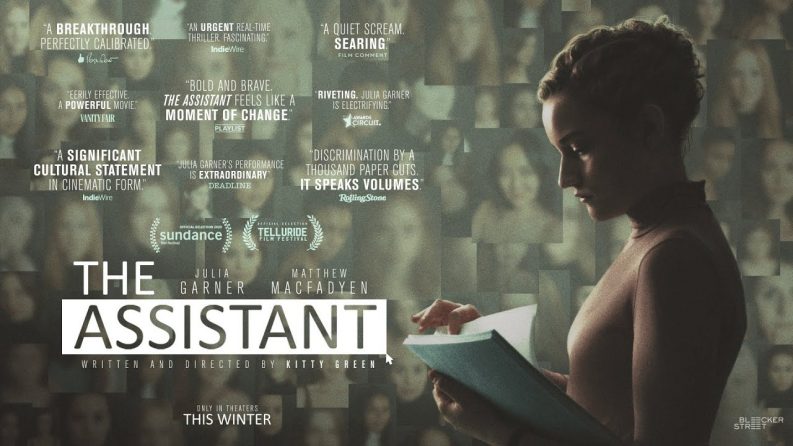In her feature directorial debut, Kitty Green has her finger on Hollywood's pulse with a story seemingly ripped from the headlines. After recently graduating, Jane (Julia Garner) beings working at a film production company as a general assistant, hoping to work her way up the ranks of Hollywood to producer. But when a young woman attracts the interest of the company's founder, Jane soon realises the lengths powerful men will go to protect themselves.
Anybody with even a passing industry in the film industry will understand the not-so-subtle context The Assistant centres around. While the story follows no specifics and is not based on one person's account, it is impossible not to recognise the behaviours of a now-imprisoned producer's in this tale of exploitation, power and abuse. Exploring how sexually predatory behaviour goes unchecked and is allowed to continue due to the oppressive environment in which it manifests, forcing silence from those aware of the incident but too powerless to speak out, The Assistant is perhaps "the" movie of the #MeToo movement.
Told from the view of Jane, who suffers the psychological effects opposed to the more frequently-documented sexual abuse, it provides The Assistant with a powerful perspective which fuels an enlighting examination and insight into an all-too-frequent occurrence, in both the film industry and the wider society. Thanks to Green's simplistic, stripped-back directorial approach, we can really sense the soullessness of the world around Jane, coming bleaker as the narrative progresses but never once fading in its reality; the decision to remain completely focused on Jane's experiences throughout provides the film with an individual we can connect to, while never forgetting that Jane should be treated as a stand-in for any minority working in an industry with such deeply ingrained power dynamics.
Due to the sparse dialogue from our lead - quite smartly a reflection of the "idealised" woman in these male-dominated establishments - the need for a strong lead is essential, and Julie Garner carries the film tremendously well. With so many of her thoughts internalised, Garner conveys a great deal with the smallest of actions: her facial expressions and body language speaking louder than she ever does. Such careful, nuanced work is often easy to dismiss but Garner is such a magnetic presence on the screen and we are drawn into Jane's struggles through the strength of her work. Matthew McFayden, with just one scene, is blistering too, turning in a masterful performance in such a short space of time.
It is also worth noting the impeccable sound mixing in evoking the atmosphere pertinent to The Assistant's success. Absent a soundtrack, broken conversations, the tapping of keyboards and whirring of office machinery score the film and cultivate the uneasy environment often punctuated by periods of complete silence purposely unnerve.
The one thing preventing this good film from being great though is its pacing. While the lengthy build-up cultivates the unease, the film's major turning point occurs 47 minutes into an 87-minute film, which leaves little room to really explore the implications of the conversation. We could quite easily feel the same effect if that first act was slashed to twenty minutes or so, instead of taking up over half of the short runtime which limits the time to fully delve into Jane processing her emotions. Pacing needs to be closely measured when a slow-burner is this short in length, and The Assistant struggles to find the balance.
Presenting The Assistant as a thriller does it a disservice; it is stronger as a character drama and study of a dangerous culture; while intense, to call it a thriller would be misleading. Its pacing problems are alleviated by the combination of observational writing, tight direction and a powerhouse lead performance from Julie Garner, which, when matched with the urgency of the story, make The Assistant a vital and sadly neccessary watch.
Summary: With a great lead performance, strong direction and a sadly vital message at its core, The Assistant examines the ingrained power dynamics and oppressive environments which allow sexually abusive behaviour to go unchecked in the film industry and wider society.
Summary: With a great lead performance, strong direction and a sadly vital message at its core, The Assistant examines the ingrained power dynamics and oppressive environments which allow sexually abusive behaviour to go unchecked in the film industry and wider society.
